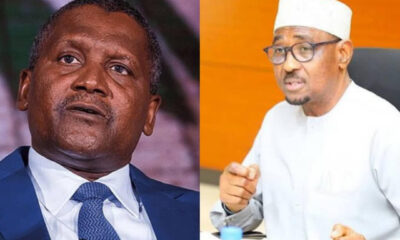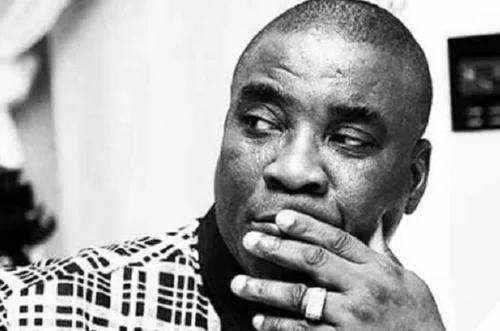The Dangote Petroleum Refinery has commenced the supply of Premium Motor Spirit, commonly known as petrol, directly to some oil marketers, bypassing the Nigerian National Petroleum Company Limited.
It was reported that while more oil marketers are making efforts to procure the product directly from the refinery, others are importing the commodity, with hundreds of millions of litres of imported PMS expected to arrive at Nigeria’s shores within two weeks.
It was earlier reported that at least four vessels carrying imported PMS arrived at seaports along the nation’s borders between Friday, October 18, and Sunday, October 20.
The report, citing a document from the Nigerian Port Authority, stated that about 123.4 million litres of PMS were berthed at two seaports to enhance the fuel supply nationwide.
This aligned with earlier report that oil dealers were planning to import PMS to supplement the supply from the $20bn Dangote refinery.
Meanwhile, as major oil marketers continue to import the product, some have begun lifting PMS directly from the Lekki-based refinery.
A senior official at the refinery mentioned that marketers can now engage in direct business transactions with the company on a “willing-buyer, willing-seller” basis.
“Marketers are already coming to the refinery to lift PMS. They are lifting directly from the refinery, not through a third party,” the reliable source, who spoke anonymously due to lack of authorisation to discuss the matter, confirmed.
Although the official did not disclose the price at which the marketers were acquiring the product, he suggested that they would not be purchasing it if the price were not favourable.
“We have reached agreements with some of the marketers and more are still ongoing. I don’t know the exact price, but if the price is not good, the marketers would not be coming to us,” the official stated.
He further indicated that the situation is improving, particularly with the Federal Government commencing the supply of crude oil to the facility.
Another official at the refinery showed one of the correspondents the trucks of some marketers loading PMS directly from the plant without involving the NNPC.
“Some of the trucks you saw there today were from marketers purchasing the product directly from Dangote, without recourse to NNPC. So the direct sale has started,” the source stated.
The official explained that due to the high demand for petrol in Nigeria and other regions, the refinery is focusing on producing 53% of PMS from its crude oil supplies.
“This could be reviewed in the future if the demand for other finished products increases more than the demand for petrol, but right now about 53% of our crude is used for petrol production, while other products account for the remaining percentage,” the official stated.
When asked if marketers had indeed started purchasing petrol from Dangote without involving NNPC, a prominent oil marketer confirmed.
“Yes, everyone is in the process. This was advised that it would happen soon and is a normal business transaction,” the marketer said.
However, this contradicts some reports suggesting that the refinery could not sell petrol to marketers unless the deal between it and the NNPC was terminated.
The PUNCH previously reported that the company had initially announced that the NNPC would be the sole off-taker of its petrol from September 15.
A refinery source mentioned that this was a decision made by the Federal Government. The same source expressed surprise when the Technical Subcommittee on “Domestic Sale of Crude Oil in Local Currency” announced on October 11 that marketers could now lift petrol directly from the refinery.
“Moving forward, petroleum product marketers are now able to purchase PMS directly from local refineries without the intermediary role of NNPC. Marketers are encouraged to initiate direct purchases from refineries on mutually negotiated commercial terms, which will promote competition and improve market efficiency,” stated the Minister of Finance, Wale Edun, who chairs the committee, in a statement.
Following the committee’s announcement, industry operators noted that the market had been fully deregulated and that they would now approach the refinery to apply for PMS lifting.
Recall that the Vice President of the Independent Petroleum Marketers Association of Nigeria, Hammed Fashola, recently led a delegation of officials to a meeting with the Vice President of Dangote Industries, Devakumar Edwin, in Lagos.
Although Fashola did not provide extensive updates about the meeting with Edwin, he expressed his gratitude for the roles Edwin had played.
“Edwin received us very well and promised to make things easier for IPMAN to do business with Dangote,” Fashola said.
Fashola further added, “We had a fruitful discussion with the group. We have started discussing modalities and other logistics. IPMAN has agreed to work with Dangote. We hope very soon we will start lifting products from the facility.”
However, IPMAN stated that it could not immediately begin off-taking products unless the refinery concluded its contract with the NNPC.
Nonetheless, refinery officials confirmed that the facility is already selling PMS to some marketers.
When the Dangote refinery started selling PMS on September 15, the NNPC claimed to have purchased the product at a rate of N898/litre, which the refinery described as misleading.
The refinery clarified that the “naira-for-crude” committee would be responsible for announcing the price of its PMS. As of October 22, the committee had yet to release an official price.

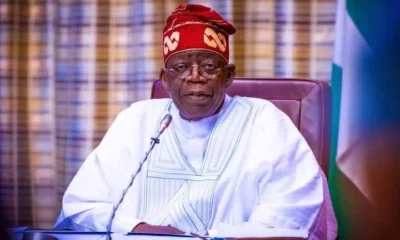
 BIG STORY4 days ago
BIG STORY4 days ago
 BIG STORY2 days ago
BIG STORY2 days ago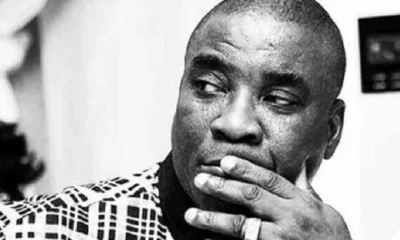
 BIG STORY10 hours ago
BIG STORY10 hours ago
 BIG STORY4 days ago
BIG STORY4 days ago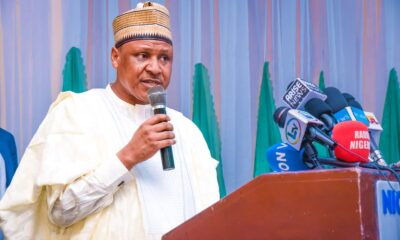
 BIG STORY1 day ago
BIG STORY1 day ago
 BIG STORY1 day ago
BIG STORY1 day ago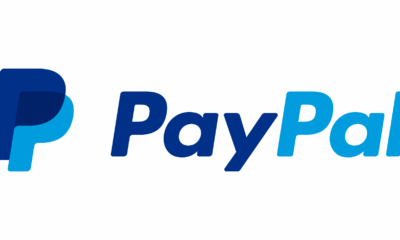
 NEWS1 day ago
NEWS1 day ago
 BIG STORY10 hours ago
BIG STORY10 hours ago






